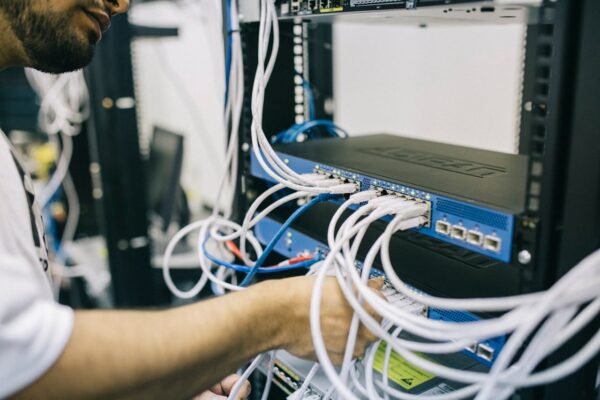The gap between rich and poor doesn’t happen by accident. The rich keep getting richer because they have more access to money, opportunities, and resources that help their wealth grow faster. Meanwhile, the poor face more challenges that make it hard to catch up.
Many things work against people who have less, like limited education, tough job markets, or rising living costs. These barriers make it difficult for them to improve their financial situation, even if they work very hard. Understanding why this gap exists helps us see what needs to change.
I want to explore these reasons and share what might help make things fairer for everyone. It’s a big topic, but breaking it down can show us where the problem lies and what can be done.
Key Takeways
- Wealth grows faster for those with more resources and opportunities.
- Barriers like education and costs hold back those with less.
- Solutions can help narrow the gap and create fairer chances.
Understanding the Wealth Gap
I want to explain what creates the gap between rich and poor. This gap isn’t just about money but also about opportunities and history. It changes over time and looks very different in countries around the world.
Defining Wealth Inequality
Wealth inequality means some people have much more money, property, and assets than others. It’s not just about income, like wages, but also what people own, such as houses, stocks, and savings.
For example, someone might earn a low salary but have no savings or property. Another person might have a high salary and own several houses or businesses. The difference in what they own shows wealth inequality.
More wealth means more power to make money grow, like investing or buying properties. People with less wealth find it harder to build security or improve their lives.
Historical Perspectives on Rich and Poor
The gap between rich and poor has been around for centuries. Long ago, land ownership was the main source of wealth. Nobles and royals owned most land, while peasants worked it with little pay.
Over time, the Industrial Revolution changed how people earned wealth. Factories and businesses made some people very rich, but many workers stayed poor.
History shows us that laws, wars, and social rules often helped the rich keep and grow their wealth. Meanwhile, poor people had fewer chances to improve financially.
Current Global Trends
Today, wealth inequality is still very wide around the world. In some places, the richest 1% hold over half of the country’s wealth. This means a small group controls most resources.
Technology and global markets have made some people richer fast. But many others struggle to find stable jobs or affordable housing.
In countries like the UK and the US, wealth inequality affects education, health, and job chances. In poorer countries, the gap is often caused by weak economies and lack of infrastructure.
Here are some key facts:
| Region | Top 1% Wealth Share | Impact |
|---|---|---|
| USA | 39% | Limited access to quality education for poor |
| Europe | 30% | Housing affordability issues |
| Developing World | 50%+ | Poor healthcare and jobs |
Understanding these facts helps me see why the rich often get richer, and the poor find it hard to catch up.
Why the Rich Get Richer
I’ve noticed that wealth often grows faster for those who already have money. This happens because they can take advantage of tools and opportunities that others can’t. These include things like how their money earns more money and special chances to invest or save on taxes.
Power of Compound Interest
Compound interest is like a snowball effect for money. When the rich save or invest, the interest they earn also starts earning interest. Over time, this leads to their money growing much faster.
For example, someone with £10,000 earning 5% interest annually would have about £16,300 after 10 years. But if they reinvest the interest, their total could reach over £16,400. The longer the money stays invested, the bigger the gap between simple interest and compound interest grows.
This effect helps the rich build wealth quicker because they usually have more money to start with and can leave it invested longer.
Investment Opportunities and Privilege
Rich people often have access to investment options that others don’t. These can include private equity, hedge funds, or early investment in startups. These types usually offer higher returns but require large amounts of money or special status.
Because of this, wealthy investors can take on more risk and potentially earn more. Ordinary people might only afford safer, lower-return investments like savings accounts or basic stocks.
This privilege means the rich can make their money work harder for them, increasing their wealth faster than most people.
Access to Exclusive Networks
The rich also benefit from connections. They often know other wealthy or powerful people who can offer business deals, insider information, or advice that’s not available to the public.
These networks create chances to start or grow businesses faster and make smarter investments. It’s a form of social capital that helps wealth build and expand in ways that money alone can’t buy.
Because access is limited, many people miss out on these valuable connections that can boost wealth.
Tax Strategies and Benefits
Wealthy individuals often use legal tax strategies to protect and grow their money. This can include setting up trusts, investing in tax-free accounts, or deducting losses against gains.
These strategies lower the amount of tax they pay compared to someone with a regular income. For example, capital gains tax on investments is usually lower than income tax from a salary.
Such benefits help keep more money in their pockets, which can then be reinvested to grow their wealth even further. Many people don’t have access to or knowledge of these tools.
Barriers That Keep the Poor from Advancing
Many things stop people from moving out of poverty. These include not having good schools nearby, jobs that don’t pay enough or feel safe, and money problems that are hard to escape.
Limited Educational Resources
I’ve seen how poor schools limit what kids can learn. When schools don’t have enough books, technology, or trained teachers, it’s tough for students to do well. Without good education, it’s harder to get better jobs.
Some areas don’t offer extra support like tutoring or career advice. This makes it even more difficult for students to prepare for university or skilled work. Access to quality education is an important stepping stone that many don’t get.
Wage Stagnation and Job Insecurity
Many low-paid jobs don’t increase in salary much over time. I find this frustrating because even after years of work, wages often stay the same. This makes saving money really hard.
Jobs can also be insecure. People might work part-time or have temporary contracts. Without steady work, planning for the future or paying bills on time feels very risky.
Debt Traps and Financial Exclusion
People in poverty often need loans but face higher interest rates. I’ve noticed payday loans or credit cards with big fees keep people stuck in debt. This makes escaping poverty nearly impossible.
Banks and other financial services can also be hard to access. Without a bank account, it’s tough to save money or get affordable credit. Being left out like this creates extra problems to overcome.
Potential Solutions and Bright Spots
Some steps can help reduce the gap between the rich and the poor. These include changing laws, teaching money skills, and supporting local projects that help people.
Impact of Policy Reforms
I believe changing government policies can make a big difference. For example, raising the minimum wage can help low-income workers earn more. Tax reforms that ensure the wealthy pay their fair share can reduce income inequality.
Also, improving access to affordable healthcare and education is key. If more people can go to school and see doctors when needed, they have better chances to improve their lives. Policies like affordable housing and social safety nets also protect the poorest families from falling deeper into poverty.
Importance of Financial Literacy
Knowing how to manage money is a skill that many people don’t get taught. I think teaching financial literacy from a young age can empower people to save, invest, and avoid debt traps.
Learning about budgeting, saving, and credit helps reduce money stress. People who understand interest rates and loans can avoid costly mistakes. Workshops, online courses, and school programmes can spread these important skills.
Role of Community Initiatives
Local projects can provide practical help where it is needed most. I have seen how community centres, job training programmes, and food banks offer support to people struggling financially.
These initiatives often focus on building skills and confidence, which creates long-term change. Communities can also share resources like childcare or transport to ease daily pressures. By working together, people can find new opportunities to improve their income and wellbeing.
FAQs
Why do the rich get richer?
I believe the rich have more money to invest and earn more from it. They also have better access to advice and opportunities. This helps their wealth grow faster than others.
Is it impossible for poor people to become rich?
No, it’s not impossible. But it is harder because they often lack money, education, or connections. These things make it more difficult to build wealth.
Can the gap between rich and poor be reduced?
Yes, through fair laws, better education, and support systems. Governments and communities can help by creating equal chances for everyone.
| Question | Short Answer |
|---|---|
| Can anyone become wealthy? | Yes, but it takes time and effort. |
| Is wealth only about money? | No, education and skills matter too. |
| Does saving help build wealth? | Yes, saving regularly builds a safety net. |
How does education affect wealth?
From my view, education gives the skills needed to get better jobs. It also helps people make smarter money choices.
What role do habits play?
Good money habits, like budgeting and saving, can help people manage their money better. Over time, these habits can boost your wealth.
If you have more questions, I’m happy to help!





